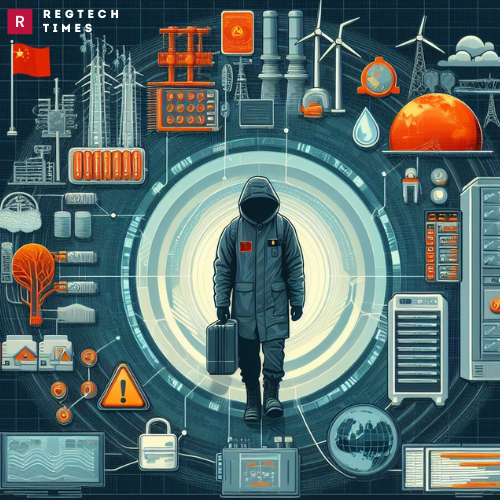In the era of modern conflict, cyber warfare emerges as a potent threat to national security. At the prestigious 2024 Vanderbilt Summit on Modern Conflict and Emerging Threats, FBI Director Christopher Wray sounded an alarm regarding Volt Typhoon, a sophisticated cyber campaign attributed to entities linked to the Chinese government. This insidious infiltration has targeted critical infrastructure in the United States, highlighting the vulnerability of interconnected systems. As warfare evolves into the digital realm, nations must confront the strategic implications of cyber warfare, navigate its geopolitical complexities, and forge proactive responses to safeguard against its far-reaching impacts.
The Threat of Volt Typhoon
At the heart of Director Wray’s address was a chilling revelation of a sustained and insidious campaign known as Volt Typhoon. Orchestrated by entities suspected to have ties to the Chinese government, this cyber offensive has successfully breached numerous American companies operating in telecommunications, energy, water, and other critical sectors. The most alarming statistic? Even 23 pipeline operators, essential lifelines of the nation’s infrastructure, have fallen victim to these clandestine attacks.
Strategic Implications and Cyber Warfare Evolution
The strategic patience of the Volt Typhoon, as highlighted by Director Wray, underscores the vulnerability of interconnected systems to cyber warfare. This calculated approach reflects the evolving nature of warfare in the digital age. Traditionally, warfare was dominated by physical battles and territorial conquests. However, with the emergence of cyber warfare, the battlefield has expanded into the virtual realm of cyberspace.
In this digital battleground, nations not only vie for supremacy through military might but also through the manipulation of information, disruption of critical infrastructure, and sabotage of key systems. Cyber attacks, such as those orchestrated by Volt Typhoon, exemplify this shift in warfare tactics. Rather than engaging in traditional military confrontations, adversaries employ stealthy tactics, exploiting vulnerabilities in cyberspace to achieve their strategic objectives.
The consequences of such attacks are far-reaching, extending beyond physical destruction to encompass economic upheaval, social unrest, and political destabilization.
Chinese hackers, for instance, operate sophisticated botnets to obfuscate their activities, making attribution and response efforts even more arduous. The botnet is a Network of computers or devices that have been infected with malware and are controlled remotely by hackers, typically used to carry out coordinated cyber attacks or other malicious activities.
Geopolitical Context
Zooming out, it becomes clear that these cyber incursions cannot be divorced from the broader geopolitical landscape. Tensions between China and the US, particularly regarding Taiwan, cast a long shadow over international relations. By targeting US infrastructure, China may seek to exert pressure and signal its willingness to escalate hostilities. However, China adamantly denies any involvement, attributing the Volt Typhoon to criminal ransomware groups, further complicating the diplomatic landscape.
Cyber Warfare Complexity
Navigating the labyrinth of cyber warfare presents a formidable challenge. Director Wray revealed that Chinese hackers operate sophisticated botnets to obfuscate their activities, making attribution and response efforts even more arduous. Collaboration between government agencies, private sector entities, and cybersecurity firms is not just desirable but essential to confront these evolving threats head-on.
Proactive Response
In the face of such a multifaceted threat, a proactive response is imperative. Strengthening cybersecurity measures within critical infrastructure, fostering collaboration between stakeholders, and engaging in diplomatic dialogue are crucial steps to mitigate the risks posed by malicious cyber actors.
By bolstering defences and addressing underlying tensions through diplomacy, we can enhance our resilience to cyber threats and safeguard against the devastating consequences of cyber warfare.
The revelation of Chinese hackers targeting US critical infrastructure serves as a stark wake-up call. As technology continues to shape modern conflict, vigilance and preparedness are paramount.
By recognizing the gravity of the threat, enhancing cybersecurity capabilities, and fostering international cooperation, we can fortify our defences against the perils of Volt Typhoon. The time to act is now, lest we find ourselves unprepared in the face of an ever-evolving and increasingly sophisticated adversary.



